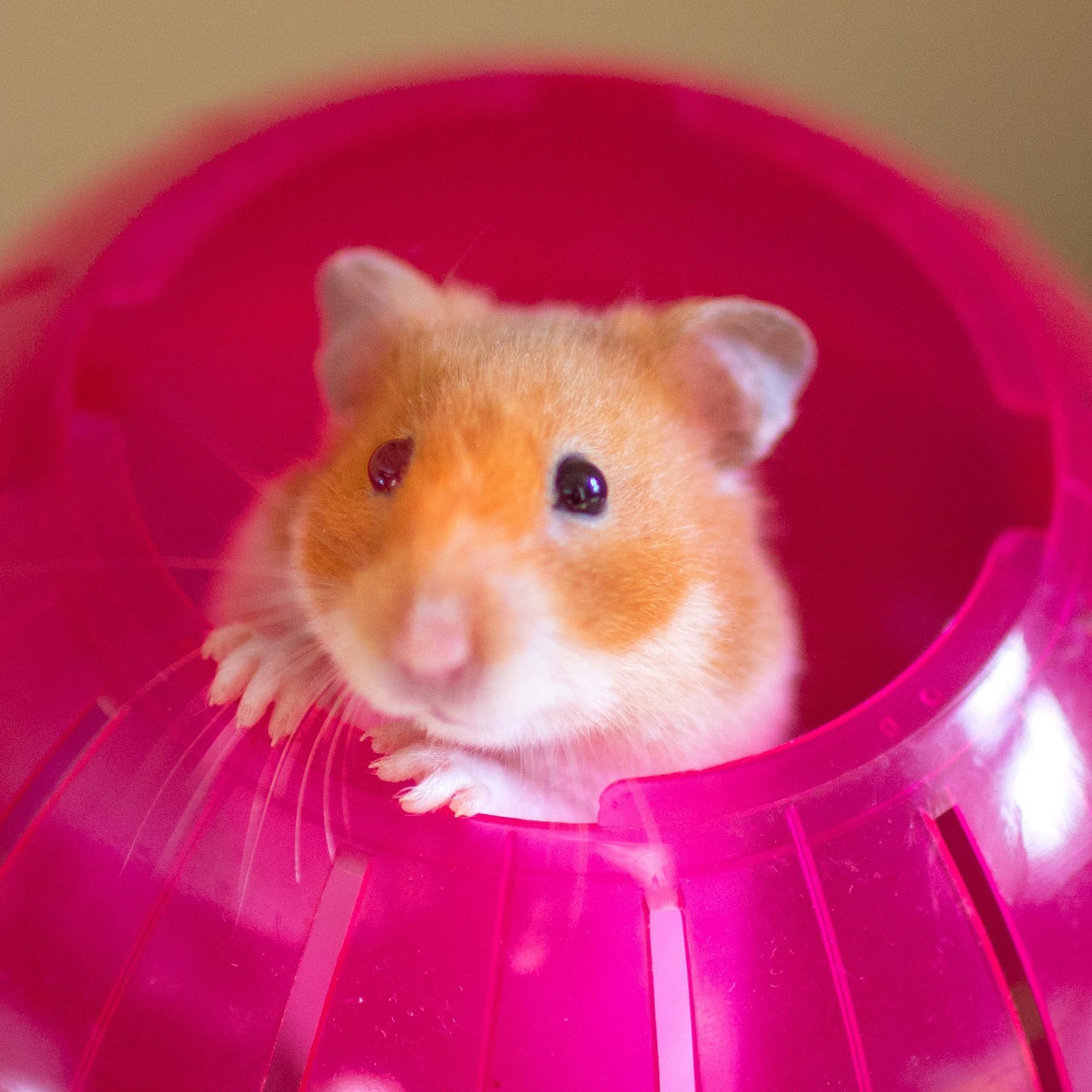Amater hamsters have captivated the hearts of pet enthusiasts worldwide with their playful nature and adorable demeanor. These small creatures are gaining popularity as the ideal companion for people of all ages. Whether you're a first-time pet owner or a seasoned animal lover, amater hamsters offer a unique blend of charm, intelligence, and low-maintenance care that makes them a perfect fit for modern lifestyles.
Amater hamsters are not just pets; they are tiny ambassadors of joy, bringing happiness and laughter into homes. Understanding their behavior, habitat requirements, and dietary needs is essential for ensuring their well-being and fostering a strong bond with them. This guide aims to provide comprehensive insights into everything you need to know about these delightful creatures.
As we delve deeper into the world of amater hamsters, you'll discover how to create a nurturing environment for them, understand their unique characteristics, and learn tips for their care. Let's embark on this journey to explore the fascinating life of amater hamsters and make your experience with them both rewarding and memorable.
Read also:Alexandre Robicquet Age Unveiling The Fascinating Journey Of A Tech Visionary
Table of Contents
- About Amater Hamsters
- Creating the Perfect Habitat
- Nutritional Needs of Amater Hamsters
- Understanding Their Behavior
- Maintaining Their Health
- Breeding Amater Hamsters
- Care Tips for Amater Hamsters
- Common Issues and Solutions
- Factors Affecting Their Lifespan
- Conclusion and Final Thoughts
About Amater Hamsters
Origins and History
Amater hamsters, scientifically known as Mesocricetus auratus, originated in the Middle East. Their discovery dates back to the early 20th century when they were first introduced to the scientific community. Initially bred for laboratory research, their charming personality quickly made them popular as household pets.
Physical Characteristics
These hamsters are small, measuring between 5 to 7 inches in length. They have a soft, plush coat that comes in various colors, including golden brown, black, and white. Their round bodies, stubby legs, and large eyes make them irresistibly cute. Additionally, their cheek pouches, capable of storing food, add to their quirky charm.
Creating the Perfect Habitat
Providing an appropriate living space is crucial for the well-being of amater hamsters. A spacious cage with ample room for movement and exploration is essential. The ideal cage should include:
- A solid floor to prevent injury to their delicate feet.
- A secure lid to prevent escape.
- Bedding material such as aspen shavings or paper-based bedding.
- A variety of toys and tunnels for mental stimulation.
Temperature and Lighting
Amater hamsters thrive in temperatures between 65°F to 75°F (18°C to 24°C). Ensure their habitat is away from direct sunlight and drafts. A consistent day-night cycle with 12 hours of light and darkness mimics their natural environment and promotes healthy sleep patterns.
Nutritional Needs of Amater Hamsters
A balanced diet is vital for the health and longevity of amater hamsters. Their diet should consist of high-quality hamster pellets, fresh vegetables, and occasional fruits. Some recommended foods include:
- Carrots
- Broccoli
- Apples (in moderation)
- Timothy hay
Always ensure fresh water is available, and avoid feeding them sugary or fatty foods that can lead to obesity and health issues.
Read also:Erica Boyers Unveiling The Life Achievements And Impact Of A Rising Star
Understanding Their Behavior
Amater hamsters are nocturnal creatures, meaning they are most active during the night. Observing their behavior can help you understand their needs and preferences. Some common behaviors include:
- Grooming themselves frequently to keep their coat clean.
- Storing food in their cheek pouches and hoarding it in their cage.
- Exploring their environment with curiosity and playfulness.
Social Interaction
While some amater hamsters enjoy the company of others, many prefer to live alone. It's essential to monitor their interactions carefully to prevent aggression and territorial disputes. Introducing new hamsters should be done gradually and under supervision.
Maintaining Their Health
Regular health check-ups and proper care are critical for maintaining the well-being of amater hamsters. Common health issues include dental problems, respiratory infections, and skin conditions. Signs of illness may include:
- Loss of appetite
- Labored breathing
- Changes in behavior
Consulting a veterinarian experienced in exotic pets is recommended for any health concerns. Vaccinations and routine examinations can help prevent potential issues.
Exercise and Enrichment
Providing opportunities for exercise and mental enrichment is crucial for their physical and mental health. Exercise wheels, tunnels, and interactive toys can keep them active and entertained. Ensure all toys are safe and free from small parts that could be swallowed.
Breeding Amater Hamsters
Breeding amater hamsters requires careful planning and consideration. Female hamsters reach sexual maturity at around 4-6 weeks, while males mature slightly later. Key points to remember when breeding include:
- Ensuring both parents are healthy and free from genetic disorders.
- Providing a separate space for the mother and her litter.
- Handling the young ones with care to avoid stress and injury.
Breeding should only be attempted by experienced hamster owners, as it requires a deep understanding of their reproductive needs and potential risks.
Care Tips for Amater Hamsters
Cleaning and Maintenance
Regular cleaning of the hamster's cage is essential to prevent the buildup of waste and bacteria. Spot clean the cage daily and perform a thorough cleaning once a week. Use pet-safe cleaning products and replace bedding material regularly.
Handling and Bonding
Handling your amater hamster gently and frequently can help build trust and strengthen your bond. Always wash your hands before and after handling them to prevent the transfer of germs. Offering treats during handling sessions can make the experience more positive for them.
Common Issues and Solutions
Amater hamsters may encounter various issues, but with proper care, many can be resolved effectively. Some common problems include:
- Overgrown teeth – Provide chew toys to help wear down their teeth naturally.
- Escape attempts – Ensure the cage is secure and escape-proof.
- Aggression – Separate aggressive hamsters and provide them with their own space.
Addressing these issues promptly can prevent further complications and ensure a harmonious living environment.
Factors Affecting Their Lifespan
The average lifespan of amater hamsters is 2-3 years, although with proper care, some may live longer. Factors influencing their lifespan include:
- Genetics
- Diet and nutrition
- Living conditions
- Access to veterinary care
Providing a nurturing environment and addressing health concerns early can maximize their lifespan and quality of life.
Conclusion and Final Thoughts
Amater hamsters are delightful companions that bring immense joy to their owners. By understanding their needs, providing a suitable habitat, and ensuring proper care, you can create a fulfilling life for these charming creatures. Remember, their well-being depends on your commitment and dedication as a responsible pet owner.
We encourage you to share your experiences and insights about amater hamsters in the comments section below. Your feedback can help other pet enthusiasts learn and grow in their journey of caring for these amazing animals. For more informative articles on pet care, explore our website and stay updated with the latest tips and trends.
References:


